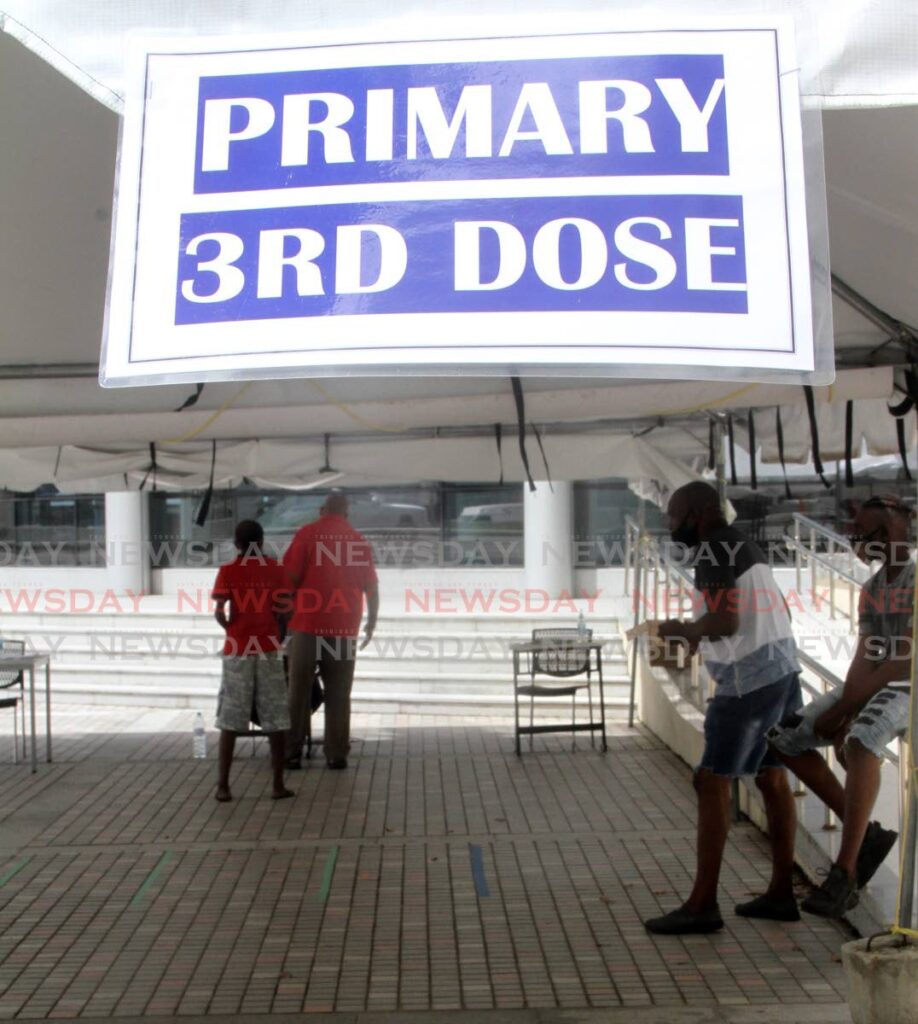Deyalsingh: Don't blame health system for covid19 surge

With November seeing the highest number of new cases and deaths in the country since the beginning of the pandemic, in March 2020, heath officials are saying the parallel health care system and a lack of booster shots are not to blame.
On November 17, TT reported the highest number of daily cases at 781 and on November 25 there was a new record number of deaths in 24 hours at 31, with TT crossing 2,000 deaths on November 24.
Chief Medical Officer Dr Roshan Parasram said the World Health Organization (WHO) only recommended the additional primary doses but was yet to have a definitive position on booster shots.
However, he said booster shots were used when immunity began to decrease which was usually recommended at six or more months after the second dose of any vaccine. Since the majority of people received their first shots in the first week of April and their second shots around mid-June, they would not qualify for booster shots until late December or early January next year.
“Having said that we look out for WHO’s approval or go ahead sometime in December and if and when they do approve, of course TT, aligned to the WHO policies, will as well go forward with our booster doses.”
Health Minister Terrence Deyalsingh defended the parallel health care system, noting that a recent International Monetary Fund report praised the country’s economic and health response.
He said the parallel health care system could not take responsibility for over 2,000 deaths and it was a shared responsibility with the government, health care workers, and the population of TT.
He said “from day one” the ministry has been urging people to take care of their health, especially if they had a non-communicable disease. Health officials warned people in advance that the delta variant would enter the country, that it was more transmissible and they should get vaccinated to help protect themselves. They asked people to go to the hospital early before they were too sick.
“We have been advocating for the three Ws, washing hands, wearing masks, being socially responsible. But yet people continue to have functions, parties. I don’t think you could blame the parallel health system for that.”
He added that the ministry increased the number of beds in the intensive care units although that stretched health system’s human resources. To compensate for that, it used technology to monitor patients remotely so when their vital statistics “goes off,” an alarm would sound and medical professions would rush to them.P
“The parallel health care system has in no way contributed to that. It is human behaviour that has contributed to that.”


Comments
"Deyalsingh: Don't blame health system for covid19 surge"